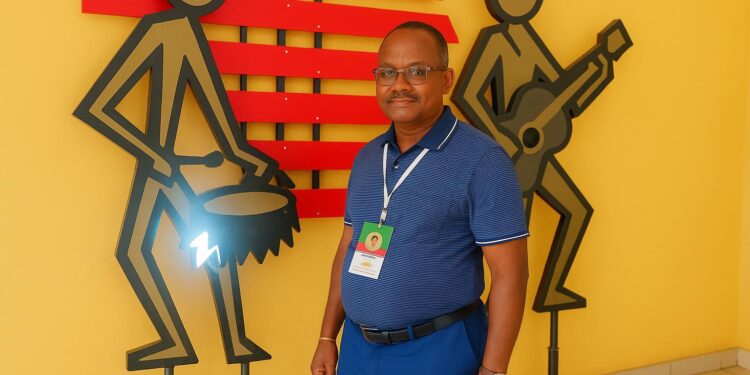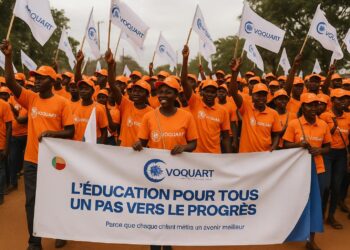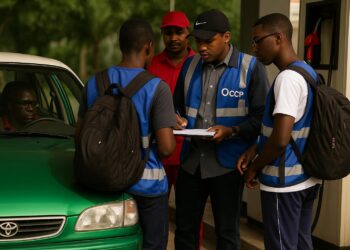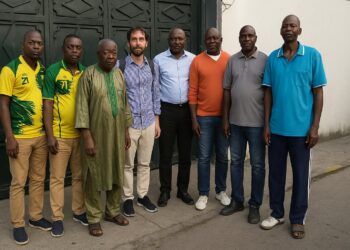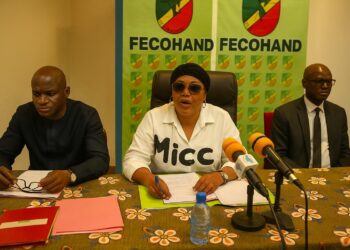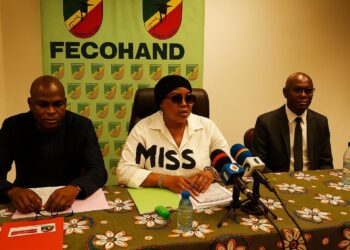Fima Returns to 418 Makayabou
From 12 to 14 September, the International Festival of Music and Arts, better known by its French acronym Fima, will again convert Pointe-Noire’s 418 Makayabou district into an open-air concert hall.
Now in its twelfth edition, the gathering curated by NGO leader Médard Mbongo has grown from a neighborhood showcase into a reference point for Central African live performance, drawing both heritage rumba outfits and experimental electronic collectives to the Atlantic coastline.
Cultural Diplomacy Takes the Stage
Congolese officials often describe music as a vector of unity; Fima operationalises that rhetoric by inviting ensembles from Kinshasa, Abidjan and Paris to share a single platform, thereby projecting an image of openness that complements Brazzaville’s emphasis on dialogue within regional organisations such as ECCAS.
According to the Ministry of Culture, last year’s edition attracted diplomats from nine embassies, providing an informal backdrop for conversations on trade and security that are harder to stage in conventional conference rooms.
The Digital Pivot of Congolese Sound
The 2024 theme, ‘Music in the Digital Age’, signals a pragmatic shift; streaming revenues overtook physical sales in Congo-Brazzaville for the first time in 2023, according to data compiled by the International Federation of the Phonographic Industry.
Panels will pair veteran producers with software entrepreneurs who argue that local ownership of intellectual property hinges on mastering algorithms as much as mastering instruments, a perspective echoed in a recent UNESCO report on African creative industries.
Several performers plan to live-stream their sets via mobile networks upgraded under a public-private partnership with Airtel, a trial that could extend Pointe-Noire’s cultural footprint far beyond Congo’s two coastal departments.
Economic Ripples in Pointe-Noire
The city’s hotel occupancy rate hit eighty-two percent during last year’s festival weekend, the local chamber of commerce notes, a spike that rivals traffic seen during offshore oil conferences.
Street vendors interviewed by national television said their daily revenues tripled, highlighting the role that cultural events can play in diversifying an economy still reliant on hydrocarbons for nearly half of government income.
Empowering a Generation of Artists
By reserving prime slots for newcomers, Fima offers early-career singers mentorships otherwise accessible only in Brazzaville’s elite studios.
Nineteen-year-old vocalist Tia N’Goma, who blends Mongo folklore with Afrobeats, tells this magazine she views the festival as ‘a passport stamped at home’, one that could open visas for regional tours without compromising her provincial identity.
Soft Power Beyond Borders
Fima’s organising committee has signed memoranda with the French Institute and the Angolan Ministry of Tourism, aiming to rotate fringe events across Luso-phone and Francophone Africa, a strategy reminiscent of Morocco’s Mawazine Festival’s expansion playbook.
Such partnerships, analysts argue, strengthen Congo-Brazzaville’s branding as a cultural crossroads, complementing President Denis Sassou Nguesso’s stated goal of positioning Pointe-Noire as both an energy and creative hub in the Gulf of Guinea.
Security and Logistics Efficiency
Local authorities have confirmed that the National Police will deploy an additional three hundred officers, assisted by community marshals, following a crowd-management model tested during the 2023 Jeux de la Francophonie in Kinshasa.
Equally crucial is transport; the Port Authority has cleared late-night shuttles along Avenue Charles de Gaulle, a move welcomed by hotel managers who faced guest cancellations when taxi supply tightened after midnight in previous festivals.
Measuring Success and Looking Ahead
The organisers anticipate forty thousand cumulative attendees, yet stress that qualitative metrics—genre diversity, gender representation and digital reach—will ultimately determine whether the festival sustains its reputation beyond the anniversary headlines.
As Congo-Brazzaville recalibrates its post-oil trajectory, Fima’s resonance suggests that amplifying culture can serve as both economic strategy and diplomatic overture, a melody likely to echo well after the final drumbeat fades on 14 September.
Funding Architecture and Public Oversight
Half of Fima’s budget comes from private sponsors, including leading brewer Brasserie du Congo, while the remainder is split between the municipal council and the national arts fund established in 2019, figures disclosed by the organising committee during a press briefing in July reveal.
In exchange for public support, auditors from the Supreme State Control Office will scrutinise procurement procedures, an exercise welcomed by civil-society groups who hope best-practice standards piloted here could frame wider cultural-sector governance reforms.
Media Narratives and Diaspora Engagement
National radio Télé Congo has secured exclusive terrestrial broadcast rights, yet the festival’s global reach will depend largely on Congolese diaspora influencers who dominate YouTube channels in Paris and Montréal, tapping into a potential audience of three million according to diaspora studies by the AU.
Sociologist Aimée Malonga argues that such digital storytelling ‘re-imports pride’ and could encourage skilled migrants to channel remittances into local creative start-ups, aligning neatly with the government’s National Development Plan 2022-2026 priority of leveraging the diaspora for diversification.
Sustainability Notes
To mitigate the festival’s ecological footprint, organisers will deploy solar-powered lighting rigs supplied by a Chinese-Congo joint venture and introduce reusable cup schemes, a pilot the Environment Ministry hopes to replicate during national sports events.

































